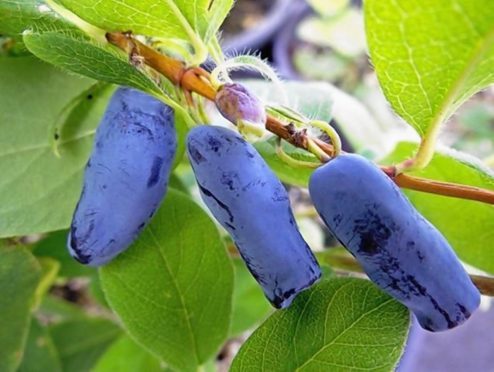New scientific evidence that consuming berries may have beneficial effects on people with some of the most serious and common health problems was presented to soft fruit growers at a meeting in Invergowrie yesterday.
Scientists from the James Hutton Institute (JHI) and Aberdeen’s Rowett Institute told growers at the Scottish Society for Crop Research meeting that their latest research showed berries could benefit people with type-2 diabetes, obesity, cardiovascular disease, neurodegenerative diseases and some cancers.
JHI researcher Dr Gordon McDougall said the benefits could be due to the presence of compounds in the fruits which can have a range of beneficial effects on food digestion. He added that new berry varieties with improved properties could be bred in the future, or new products formulated for specific health benefits.
The news was immediately welcomed by Scotland’s berry industry, but Blairgowrie soft fruit producer Peter Thompson bemoaned the fact that the information can’t be displayed on punnets of fruit.
“Legally we’re not allowed to say berries are health-giving,” he said.
“It would make a big difference to sales to be able to put the information on our labels. ”
Fruit farmers also heard evidence that honeyberries, a crop that is new to Scotland, also had high levels of the health-giving compounds.
The honeyberry accounts for just 0.3% of Scottish fruit production but interest among farmers is growing as the fruit has high resistance to pests and diseases and has the potential to be machine harvested. It looks destined to follow the rapid growth and popularity of blueberries.
Mr Thomson said his long-established business at Blairgowrie had switched from growing 60 acres of raspberries and 150 acres of strawberries to 60 acres of blueberries, 20 acres of cherries and a small acreage of aronia berries, another so-called superfruit.
JHI’s chief raspberry breeder, Nikki Jennings told growers the current focus of her work was increasing the size of berries to reduce picking costs and increase yield.
“It’s not that flavour has reduced in the scale of priorities, it’s just that labour costs means fruit size has become more important,” she said.
“We’re looking for a variety that’s acceptable to the supermarkets but is also cheap to grow with reduced inputs.”
She said Glen Dee, JHI’s latest raspberry variety, had done well in Scottish plantations last year.
She added: “We’ve got new material coming through trials, some with good resistance to raspberry root rot and some with large fruit and good flavour. We hope to be releasing the next variety within the next two years.”
